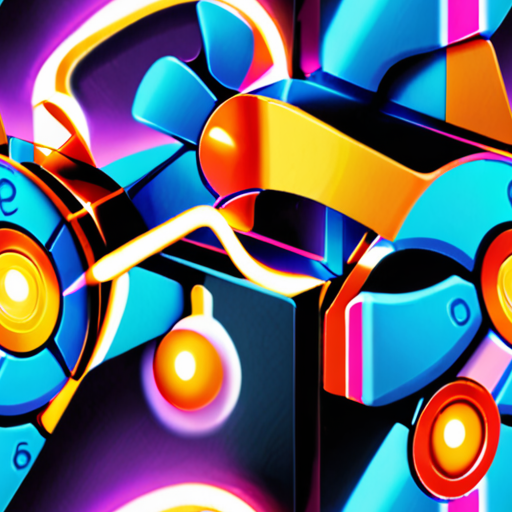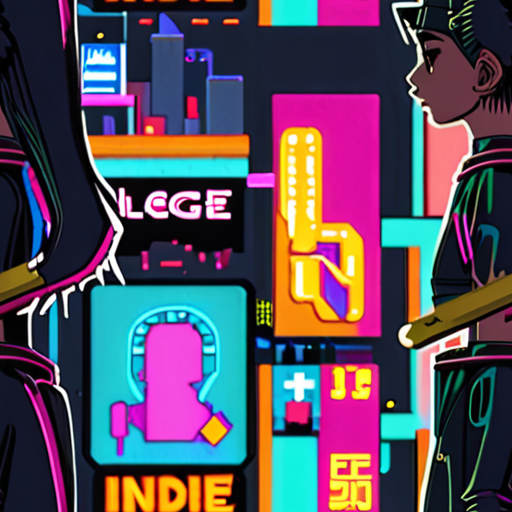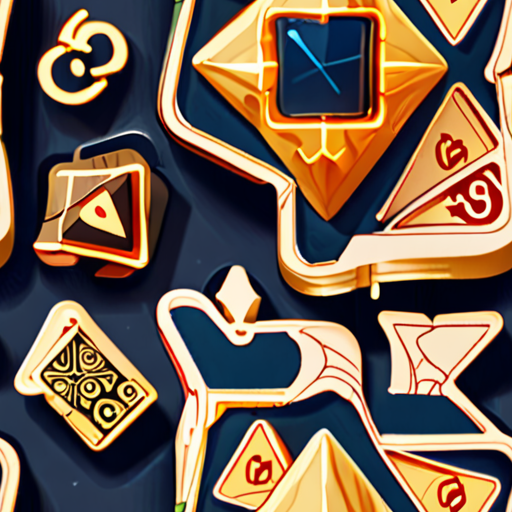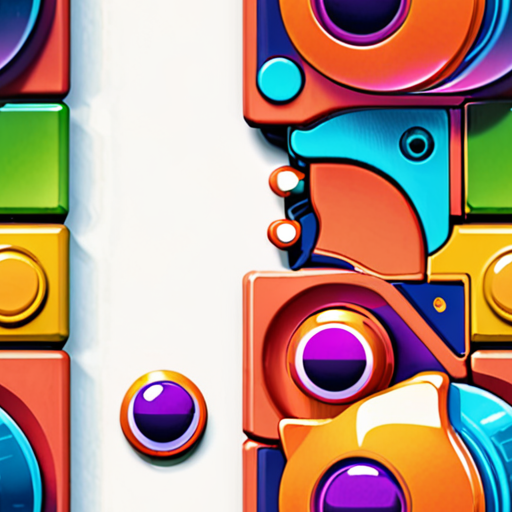For aspiring game developers, creating an engaging and immersive experience is just half the battle – getting it seen and played by a wider audience is where the real challenge lies. With the ever-growing competition in the gaming industry, standing out from the crowd requires a well-thought-out strategy that combines creativity, resourcefulness, and a deep understanding of your target audience. In this article, we’ll delve into the world of indie game marketing, exploring proven ideas and tactics to help you reach a broader audience, boost sales, and ultimately achieve success in the cutthroat world of independent game development.

Marketing Your Indie Game
As an indie game developer, marketing your game can be a daunting task.
- Define Your Target Audience
- Create a Strong Online Presence
- Build a Community
- Utilize Influencer Marketing
- Run Effective Advertising Campaigns
- Optimize Your Game’s Visibility
- Collect Feedback and Analyze Performance
- Stay Up-to-Date with Industry Trends
Determine who your ideal player is, what type of games they enjoy playing, and how you can reach them effectively.
Develop a website or landing page that showcases your game, its features, and its unique selling points.
Engage with potential players through social media, forums, and online communities to build a loyal fan base.
Partner with influencers or content creators in the gaming industry to promote your game to their followers.
Use platforms like Facebook Ads, Google AdWords, or Steam Ads to target specific audiences and drive traffic to your game’s page.
Ensure your game appears in search results by optimizing its metadata, descriptions, and tags.
Gather feedback from players, analyze your game’s performance, and adjust your marketing strategy accordingly.
Attend conferences, join online communities, and stay informed about the latest developments in the gaming industry.
Additional Tips
Consider collaborating with other indie game developers, participating in game jams, or hosting events to increase visibility and engagement.
Best Practices
Avoid overspending on advertising, focus on building a loyal community, and continually evaluate and improve your marketing strategy.
SEO Optimization
Use relevant keywords, meta descriptions, and optimize images to improve your game’s visibility in search engine results.
Content Creation
Develop a content calendar, create engaging blog posts, videos, or podcasts to attract and retain a clearly defined audience.
Analytics and Tracking
Monitor your game’s performance using analytics tools, track player behavior, and adjust your marketing strategy based on the data collected.
Marketing Budget for Indie Games
The ideal marketing budget for an indie game can vary greatly depending on several factors, including the scope of the project, target audience, and competition.
-
Typical Range:
Indie game marketing budgets often range from $5,000 to $50,000.
-
Key Expenses:
Marketing budgets may include costs for:
- Social media advertising
- Influencer partnerships
- Email marketing campaigns
- Content creation (e.g., trailers, screenshots)
- PR and outreach efforts
- Event sponsorships
-
Smaller Indie Games:
Smaller indie games might spend closer to the lower end of the typical range ($5,000-$10,000), focusing on grassroots marketing efforts and leveraging free or low-cost promotional channels.
-
Larger Indie Games:
Larger indie games may approach or exceed the higher end of the typical range ($40,000-$50,000), investing in more extensive marketing campaigns, including paid advertising, influencer partnerships, and event sponsorships.
When determining a marketing budget for your indie game, consider the following factors:
- Your target audience and their preferences
- The level of competition in your genre
- The scope and complexity of your game
- Your team’s expertise and resources
- Your overall financial situation and goals
By understanding these factors and allocating your budget accordingly, you can create a effective marketing strategy that reaches your target audience and drives sales for your indie game.

Selling an Indie Game
As an indie game developer, selling your game can be a daunting task, but with the right strategy, you can increase your chances of success.
- Develop a Strong Online Presence
- Build a Community
- Utilize Influencer Marketing
- Run Effective Advertising Campaigns
- Optimize Your Game for Discoverability
- Offer Incentives and Discounts
- Analyze and Improve
Create a professional website that showcases your game, its features, and its benefits. Use social media platforms to promote your game and engage with potential customers.
Foster a community around your game by interacting with players, responding to feedback, and sharing updates. This will help you build a loyal fan base and encourage word-of-mouth marketing.
Reach out to gaming influencers, reviewers, and content creators to showcase your game and reach a wider audience. Offer them exclusive access to your game in exchange for honest reviews and feedback.
Use targeted advertising campaigns to reach potential customers who are interested in games like yours. Platforms like Steam, GOG, and Facebook offer effective advertising options.
Make sure your game is easily discoverable on digital storefronts like Steam and GOG. Use relevant keywords, descriptions, and screenshots to help players find your game.
Offer limited-time discounts, free demos, or beta access to incentivize players to try your game. This will help you build a loyal customer base and increase sales.
Monitor your game’s performance using analytics tools, and adjust your marketing strategy accordingly. Identify what works and what doesn’t, and make changes to optimize your sales.
By implementing these strategies, you can effectively sell your indie game and reach a wider audience.

How to Make an Indie Game Popular
As an indie game developer, making your game popular requires a combination of creativity, hard work, and effective marketing strategies.
- Develop a Strong Community
- Create High-Quality Content
- Optimize Your Game for Search Engines
- Utilize Influencer Marketing
- Run Contests and Giveaways
- Monitor and Analyze Performance Metrics
- Stay Up-to-Date with Industry Trends
Building a strong community around your game is crucial for its success. Engage with your audience through social media, forums, and events to create a loyal fan base that will help promote your game.
Your game needs to stand out from the competition, and high-quality content is essential for achieving this. Invest in professional graphics, sound effects, and music to create an immersive gaming experience.
Search engine optimization (SEO) is critical for increasing your game’s visibility online. Use relevant keywords in your game’s title, description, and tags to improve its ranking in search engine results.
Influencer marketing can help you reach a wider audience and increase your game’s popularity. Partner with influencers in the gaming industry to promote your game to their followers.
Running contests and giveaways can help generate buzz around your game and encourage people to share it with others. Offer prizes or rewards to participants to incentivize engagement.
Tracking your game’s performance metrics, such as player engagement and revenue, can help you identify areas for improvement and optimize your marketing strategy accordingly.
The gaming industry is constantly evolving, and staying up-to-date with the latest trends and technologies can help you stay ahead of the competition.
By implementing these strategies, you can increase your indie game’s visibility, attract a larger audience, and ultimately drive sales and revenue.
Additional Tips:
- Collaborate with other indie game developers to co-promote each other’s games.
- Offer exclusive content or discounts to loyal fans to reward their loyalty.
- Host live streams or Q&A sessions to engage with your audience and build a stronger connection with them.
- Utilize email marketing campaigns to keep your audience informed about updates, promotions, and new content.
Conclusion is Not Required
Getting Your Indie Game Noticed
As an indie game developer, getting your game noticed can be a daunting task.
- Develop a Strong Online Presence
- Network and Collaborate
- Optimize Your Game’s Visibility
- Build a Community Around Your Game
- Run Contests and Giveaways
- Monitor and Adapt to Feedback
Create a professional website showcasing your game’s features, gameplay, and story.
Utilize social media platforms to share updates, behind-the-scenes content, and engage with potential players.
Establish a strong online presence by claiming your game’s page on popular gaming directories like Steam and GOG.
Attend gaming conventions, meetups, and events to connect with fellow developers, publishers, and industry professionals.
Collaborate with influencers, content creators, and other developers to reach a broader audience.
Pitch your game to publishers, investors, and other potential partners to secure funding and distribution deals.
Conduct thorough market research to identify your target audience and tailor your marketing strategy accordingly.
Use targeted advertising on platforms like Facebook, Twitter, and Google Ads to reach potential players.
Participate in online communities, forums, and discussions related to your game’s genre to build buzz and gather feedback.
Create a dedicated community forum or Discord server for players to discuss the game, share tips, and collaborate on mods.
Host AMAs (Ask Me Anything), live streams, and Q&A sessions to engage with players and build a loyal fan base.
Reward loyal players with exclusive content, early access, or other incentives to foster a sense of ownership and loyalty.
Host contests, giveaways, and tournaments to generate buzz and encourage player engagement.
Partner with influencers and content creators to amplify your reach and attract new players.
Analyze contest and giveaway results to refine your marketing strategy and optimize future campaigns.
Regularly collect and analyze player feedback through surveys, polls, and community discussions.
Address concerns, fix bugs, and implement changes based on player feedback to demonstrate your commitment to quality and community involvement.
Stay up-to-date with industry trends, player preferences, and emerging technologies to stay ahead of the competition.
By implementing these strategies, you’ll increase your indie game’s visibility, attract a loyal player base, and ultimately drive sales and revenue.

How Many Indie Games Are Profitable?
The number of profitable indie games has increased significantly over the years, thanks to advancements in technology, changes in consumer behavior, and the rise of digital distribution platforms.
- Breaking Down the Numbers:
- According to recent statistics, around 20% of indie games manage to break the $100,000 revenue mark, which is a significant increase from previous years.
- Of these, the top 15% of successful indie games consistently earn over $200,000 in revenue, demonstrating the potential for long-term profitability in the indie gaming market.
While these numbers may seem impressive, it’s essential to note that the majority of indie games still struggle to turn a profit. However, with the right strategy, marketing, and game design, indie developers can increase their chances of success.
Key Factors Contributing to Indie Game Profitability
- Game Quality and Polishing: A well-designed and polished game is more likely to attract players and generate revenue.
- Marketing and Community Building: Effective marketing and building a strong community can help indie games reach a wider audience and increase visibility.
- Digital Distribution Platforms: The rise of digital distribution platforms like Steam, GOG, and the Epic Games Store has made it easier for indie developers to distribute their games and reach a global audience.
Conclusion
In conclusion, while the number of profitable indie games is increasing, it’s still a challenging market to succeed in. By focusing on game quality, marketing, and community building, indie developers can increase their chances of success and join the ranks of profitable indie games.




0 Comments